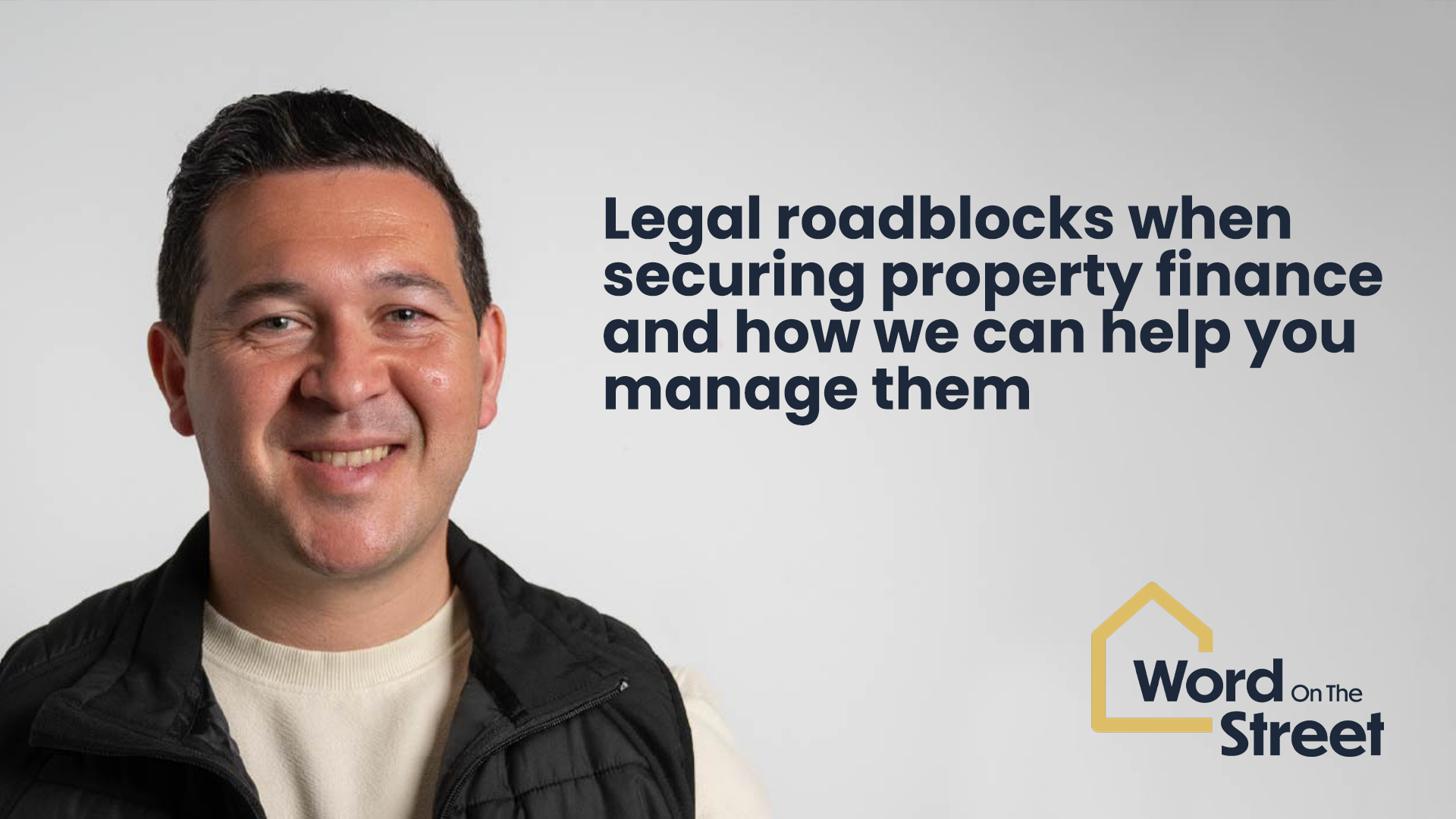By Jack Medlicott, Partner at Word On The Street
If you’re investing in property or need specialist lending, you’ve probably heard horror stories about deals falling through at the last minute. The truth is, many of these problems stem from legal issues that could have been prevented with better preparation and the right expertise.
One of the first hurdles you’ll face is proving who you are. Many solicitors still insist you visit their office in person to get documents stamped and certified – a process that can add weeks to your transaction. This is frustrating because secure electronic ID verification exists and is more reliable than the old paper-based system. However, not all legal professionals have adopted this technology, resulting in unnecessary delays. Ask your solicitor upfront if they accept electronic ID verification, and if they don’t, consider whether this old-fashioned approach fits your timeline.
There’s also a noticeable difference between a regular residential conveyancer and a specialist property lending solicitor. Lawyers and specialists who deal with complex property transactions daily understand the potential pitfalls and know how to avoid them. They’ll ask the right questions early on and spot problems before they become deal-breakers. On the other hand, solicitors who mainly handle straightforward residential property purchases might use the same approach for your more complex investment deal. They’re not doing anything wrong, but they might miss important details that only surface days before completion – when fixing them becomes stressful and expensive. Choose a solicitor or specialist who regularly handles the type of transaction you’re doing, not just any property lawyer.
One of the most common last-minute delays involves existing debts and loans. Many investors don’t fully understand how their current financial arrangements might affect their new borrowing. This includes money you’ve lent to your own company which are known as directors loan, loans from business partners, or complex company structures with interconnected debts. When your new lender discovers these arrangements during their checks, they’ll want assurance that their loan takes priority. This requires restructuring existing borrowing being subordinated behind the new lenders debt – this process may involve further deeds or waivers being executed prior to completion. Be completely transparent about all your existing financial arrangements from day one, and don’t assume they won’t be relevant.
If you have existing loans or business arrangements, these might include terms that require permission before you can enter into further borrowing . Sometimes, some restrictions conflict with your new lender’s requirements. Sorting this out might need consent letters or complex agreements between your old and new lenders. When discovered late in the process, this can cause significant delays, especially if your existing lender is slow to respond or uncooperative. Review all your existing loan agreements early in the process and flag any restrictions to your broker and solicitor.
Different types of property investment come with specific legal requirements that can catch you off guard. Houses in Multiple Occupation (HMOs) need proper licensing, compliant tenancy agreements, and certificates for electrical safety, gas safety, and energy performance. Missing any of these can stop your transaction dead. Development projects require planning permissions, building regulations approval, proper insurance, and documentation about your construction team. These requirements are interconnected, so problems with one can undermine everything. Start gathering property-specific documentation as soon as you identify your investment target, not when your solicitor asks for it.
Many first-time property investors or those new to specialist lending don’t know what documentation they’ll need. When this lack of knowledge is combined with a solicitor who also lacks specialist experience, you get a reactive approach where problems are only addressed when they’re discovered – usually at the worst possible time. Educate yourself about the requirements for your specific type of investment, and work with experienced professionals who can guide you proactively.
Poor communication between you, your broker, your solicitor, and your lender often makes problems worse. You might not know when you’ll need to provide face-to-face advice sessions, either in person or by video call, or lender requirements might not be communicated early enough for proper preparation. Because many legal requirements must be completed in sequence, delays in one area create a domino effect throughout your transaction timeline. Insist on clear communication from all parties about what’s needed and when, and don’t accept vague timelines.
When legal issues surface at the last minute, they become expensive emergencies. You might face extended periods of paying expensive interim financing, miss time-sensitive investment opportunities, incur additional legal and professional fees, and experience stress that damages your confidence in the process.
The key to avoiding legal complications is early identification, proactive management, and most importantly, choosing experienced professionals who specialise in your type of transaction. Be completely transparent about your financial situation from the start, start gathering documentation early rather than waiting to be asked, insist on clear communication and realistic timelines from all parties, and ask questions if you don’t understand something.
Success in specialist lending isn’t just about finding the right deal – it’s about having the right team and approach to get it completed smoothly. When everyone understands what’s required from the beginning, the entire process becomes more efficient and less stressful.
As the newest member of the Word On The Street team, I’m here to help ensure your transaction process runs as smoothly as possible, including identifying any complex legal hurdles from the outset. Speak to us today to start your property journey!

